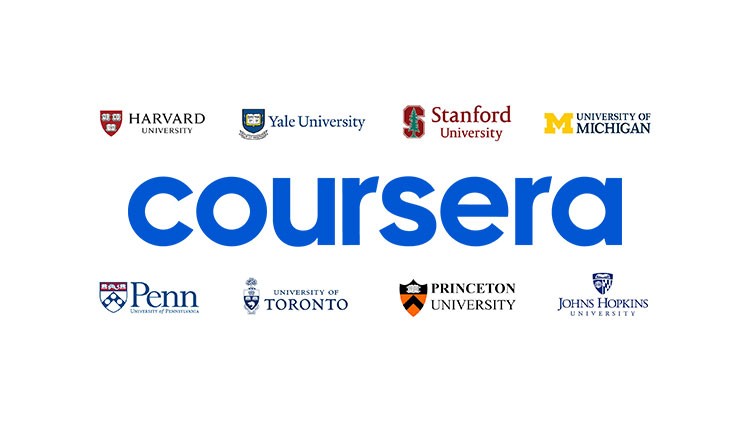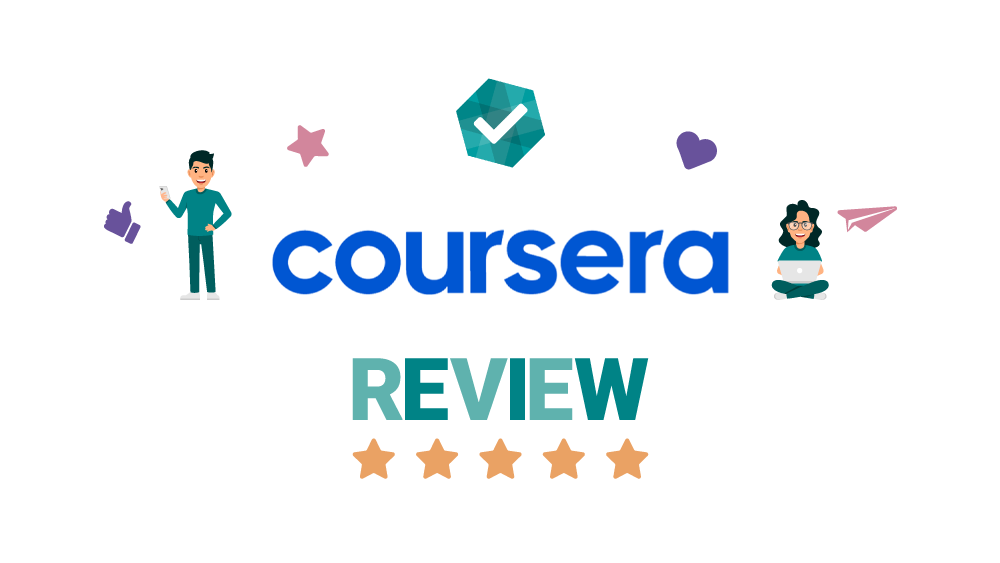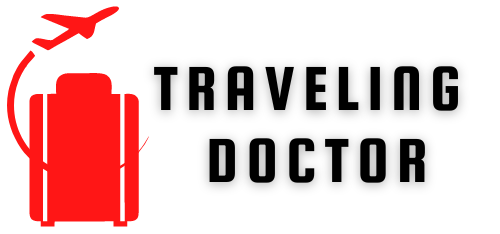Is Coursera as good as all the hype it gets?
Let’s get started. It is one of the most popular online education platforms offering courses on data science, business, health and more. Coursera offers a variety of programs of study, from courses to specializations to degrees.
Coursera is an online learning platform that offers courses and degree programs from some of the world’s top universities and educational institutions. Founded in 2012 by two Stanford University computer science professors, Andrew Ng and Daphne Koller, Coursera has quickly become a leader in online education, with millions of learners from around the world enrolled in courses on its platform.
Coursera offers courses on a wide range of topics, including computer science, data science, business, arts, and humanities. Courses range in length from a few weeks to several months, and many are available for free, while others require payment to enroll in or earn a certificate of completion.
One of the unique features of Coursera is its partnerships with universities and institutions around the world. Some of the top universities with courses on Coursera include Stanford University, Yale University, Princeton University, and the University of Pennsylvania. Coursera also partners with companies and organizations, such as Google and IBM, to offer courses and programs on specific topics.
In addition to individual courses, Coursera offers a variety of programs and services, such as Specializations, Professional Certificates, and even fully accredited online degree programs. Specializations are a series of courses focused on a specific topic, and completing all courses in a specialization earns a certificate of completion. Professional Certificates are designed to help learners develop job-ready skills in a specific field, and can be added to a resume or LinkedIn profile. Coursera’s online degree programs are offered in partnership with universities and allow learners to earn fully accredited degrees online.
Coursera‘s courses and programs are designed to be flexible and accessible to learners around the world. Course content is delivered through videos, readings, quizzes, and assignments, and learners can access course materials and complete assignments on their own schedules. Many courses also offer discussion forums and other interactive elements to encourage engagement with instructors and peers.
While Coursera courses are primarily designed for individual learners, the platform also offers enterprise solutions for companies and organizations. These solutions provide customized training and development programs for employees, as well as analytics and reporting tools to track learner progress and outcomes.

Who Is Coursera For?
You may be asking yourself, is Coursera right for me?
That really does depend on what you are looking for, but the fact Coursera offers such a wide range of affordable courses and different learning programs, that there is a high chance you may find it. Coursera partners with top Universities and Companies to create the following course types.
Courses
Coursera offers over 2,600+ courses for free with the option to upgrade by paying for the certificate. They are taught by top instructors from world-class Universities and Companies.
Guided Projects
Learn job-relevant skills in under 2 hours. A short interactive course that is taught by subject-matter experts and a choice of 3,200+ to pick from.
Specializations
A series of related courses ideal for someone wanting to master a career skill. You could decide to take only the one course related to that career skill or the series of courses which would cover all aspects of that skill. There are 790+ specializations to choose from.
Professional Certificate
Training programs which are preparing you for a job or a particular industry. Some professional certificates are recognized by an organization or school. There are 90+ Professional Certificates to choose from. All of which come with a 7-day free trial and can be completed in less than 6 months.
Pricing and Plans
Coursera offers a variety of pricing and plans depending on the type of content you want to access, the level of interaction you desire, and the length of time you wish to enroll in a course. Here are the main options:
- Audit a course for free: Many courses on Coursera are available to audit for free. This means that you can access the course content but you won’t be able to submit assignments, earn a certificate, or receive feedback from instructors.
- Enroll in a course with a fee: Some courses require payment to enroll in. This gives you access to graded assignments, a course certificate upon completion, and the ability to interact with instructors and peers.
- Coursera Plus: This is a subscription-based service that provides unlimited access to over 90% of Coursera’s course catalog for a fixed fee. With Coursera Plus, you can take as many courses as you want, earn certificates, and get access to premium features like job-ready skills assessments.
- Specializations: Specializations are a series of courses focused on a specific topic. You can pay for each course individually or enroll in the entire specialization at a discounted price. Specializations typically include a capstone project or final exam, and earning a certificate requires completing all courses within the specialization.
- Professional Certificates: Professional Certificates are designed to help you develop job-ready skills in a specific field. These programs typically take 3-6 months to complete and require payment. Upon completion, you’ll receive a certificate that can be added to your resume or LinkedIn profile.
- Degrees: Coursera offers online degree programs from top universities around the world. These programs require a significant time and financial investment, but offer the opportunity to earn a fully accredited degree online.
There are several pros and cons to using Coursera for online learning:
Pros:
- Flexibility: Coursera courses are available online and can be accessed from anywhere, at any time. You can learn at your own pace and fit coursework around your schedule.
- Variety of courses: Coursera offers a wide range of courses on various topics, including many from top universities and institutions around the world.
- Quality of instruction: Coursera courses are typically designed and taught by experienced instructors, ensuring a high level of quality in the course content.
- Interactive learning: Many Coursera courses offer interactive elements such as discussion forums, quizzes, and assignments that provide opportunities for engagement with instructors and peers.
- Affordability: Many courses on Coursera are available for free, and even paid courses and programs can be more affordable than traditional in-person education.
Cons:
- Self-directed learning: Coursera courses require self-motivation and self-discipline as you are responsible for managing your own learning and staying on track.
- Limited interaction: While many courses offer interactive elements, the level of interaction with instructors and peers is often limited compared to in-person classes.
- Certification costs: While many courses on Coursera are available for free, earning a verified certificate often requires payment. The cost of earning certificates can add up over time.
- Technical issues: Technical issues, such as internet connectivity or software compatibility, can sometimes interfere with learning.

How To Open A Coursera Account?
The registration process for Coursera is really straightforward. Just in case you are unsure I have broken down the registration process which looks like this:
- Open a browser and visit www.coursera.org
- Click Join for Free in the top-right corner
- Add your Full Name, Email and Create a Password (or use Google or Facebook)
- You will be sent a confirmation email
Once you are signed up, you can click on Explore and begin browsing the different courses on offer.
After you have selected a subject or learning program, you can choose one of the subcategories, which will take you to all the relevant courses.
How To Request A Refund With Coursera?
After paying for either an individual course or a Coursera Plus subscription, you can request a refund within 2 weeks of your payment.
To request a refund follow these easy steps:
- Open your My Purchases page
- Find the course or Coursera Plus subscription that you want to refund
- Below the Refund deadline column, click Get Refund
If you have purchased another type of learning program, like a Specialization, sadly these aren’t refundable. The only other option is that if you have a subscription payment on another learning program, you can cancel it to end future payments.
How to Find the Best Course available on Coursera?
- Consider your goals: Before searching for courses, consider what you want to achieve. Are you looking to develop new skills for your job, learn a new hobby, or explore a new field? Understanding your goals can help you narrow down your search.
- Browse the catalog: Take some time to browse Coursera‘s course catalog, which is organized by subject areas. This can help you identify courses that align with your interests and goals.
- Read course descriptions: Once you’ve identified courses of interest, read the course descriptions carefully. Course descriptions provide an overview of the course content, learning objectives, and prerequisites.
- Check the reviews: Coursera allows learners to rate and review courses. Reading reviews from past learners can provide insight into the course content, instructor quality, and overall experience.
- Consider the instructor’s credentials: Coursera courses are typically taught by experienced instructors from top universities and institutions. Researching the instructor’s credentials can help you determine the quality of instruction and whether the course is a good fit for your needs.
- Look for interactive elements: Many Coursera courses offer interactive elements, such as discussion forums, quizzes, and assignments. These can provide opportunities for engagement with instructors and peers, and help reinforce learning.
- Consider the time commitment: Coursera courses vary in length and time commitment. Be sure to consider the time required to complete the course and whether it fits with your schedule.
- Check for certifications: If earning a certificate is important to you, check whether the course offers a certificate of completion and what the requirements are for earning it.
- Consider the cost: Coursera offers a variety of courses, some of which are free, while others require payment to enroll or earn a certificate. Consider your budget and whether the cost of the course is worth the investment.
The Google Data Analytics Professional Certificate is made up of 8 courses, that will help prepare you for a job in Google Data Analytics. From working just 10 hours a week, you can complete the certificate in less than 6 months. The 8 courses are broken up into the following;
Course 1 – Foundations: Data, Data, Everywhere
Course 2 – Ask Questions to Make Data-Driven Decisions
Course 3 – Prepare Data for Exploration
Course 4 – Process Data from Dirty to Clean
Course 5 – Analyze Data to Answer Questions
Course 6 – Share Data Through the Art of Visualization
Course 7 – Data Analysis with R Programming
Course 8 – Google Data Analytics Capstone: Complete a Case Study
Final Verdict
Coursera is one of the most popular online learning platforms it offers thousands of courses and different learning programs from Guided Projects, Professional Certificates to Degrees. It partners with world-class Universities and Companies to create its courses and learning programs. Coursera offers a variety of payment plans, from completely free to paying for an individual course or via a monthly or annual subscription. Its courses are flexible, affordable, job relevant and recognized by future employers. A free trial is available on Coursera Plus and you can request a refund within 2 weeks of payment on individual courses and Coursera Plus.

When they displayed “Enroll For Free” before I created an account, I thought, “Wow, if this course is free, that would be fantastic.” But as soon I logged in, the button “Enroll For Free” changed to “Enroll”, this infuriated me. Such kind of things are not expected from reputed organizations, and only fraud and scammy companies play such kind of cheap tactics to get people’s personal information, so they have to create an account.
I subscribed to their website thinking that it was free and that I won’t be charged for anything. unfortunately I was wrong because after 7 days my PayPal account was charged…I never gave my permission to charge my account.
Unfortunately it’s very unprofessional the way they operate. Hands off from this ‘service’.
I signed up for a course and paid for the course certificate, then was offered a free trial of their Plus subscription. I took the offer, but what they really did was refunded my payment for the course certificate and charged me for Plus. I canceled my “free” trial and now I can’t access my course to finish it and will have to pay the fee again to access my progress. This is blatantly a scam and dishonest.
GOOD BECAUSE THEY HAVE MANY NICE COURSES AND TERRIBLE BECAUSE THEY DON’T VALUE EFFICIENCY AND TIME. THE VIDEOS FEATURE IS NOT GOOD. WE CAN’T EASILY PAUSE WITH A SINGLE CLICK LIKEYOUTUBE.
EVEN SIMPLE THINGS LIKE LOADING PAGES OF PRACTICE QUIZZES TAKE TIME!